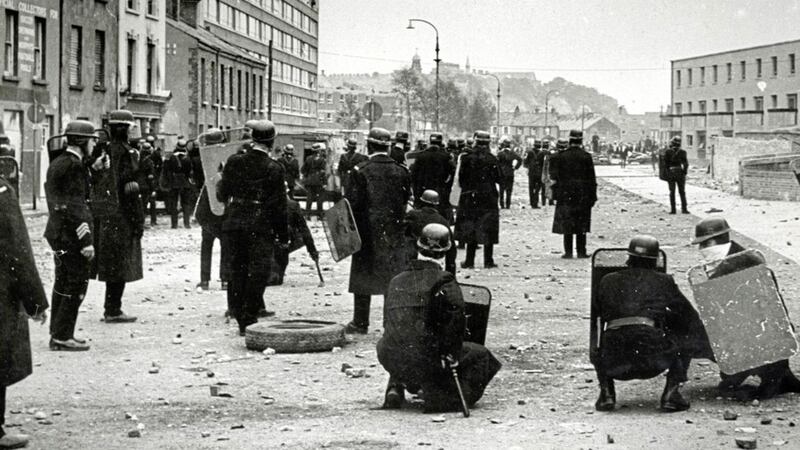What had those hate-filled signs on a Newry bonfire to do with internment or the festering injustice that fed the Troubles?
The contempt for neighbours and neighbourhood is reminder yet again that some feel no more attachment to the society they live in than their grandparents and great-grandparents did. They may feel even more forgotten.
But the two leading economists who recently published ‘The Political Economy of a Northern Ireland Border Poll’, Adele Bergin and Seamus McGuinness, have things to say about bonfire-builders. Maybe not directly, but about the northern economy on the verge of Brexit, decades on from ‘the conflict’.
Brexit is likely to widen the gap between both ‘GB regions and the Republic of Ireland in many of the policy areas examined in this paper’, the authors say, casting a cold eye on the relationship between UK regions. The area Northern Ireland most resembles, they write, is just across the border, the least prosperous part of the Republic.
McGuinness and Bergin find several reasons for the lack of a peace dividend, including an education system that produces the highest UK share of individuals with basic or no qualifications and the lowest share of graduates, well behind the Republic in both. Disparity in educational attainment comes under ‘The Distribution of Human Capital.’
We are regularly told that ours is a wonderful education system; all those A levels, grammar schools Britain envies. As summer ends with some teenagers sorting out university entrance while others walk past the scorch marks of their bonfires, the title ‘Human Capital’ in a dry report, to the non-academic reader, has a tragic ring to it.
A half-century ago today, though nobody could have guessed at the time, the north had only 24 hours to go before sliding into the longest ‘Troubles’ of its history. Though of course for more than a year earlier the place had been on the road to disaster, street clashes, police behaviour and Stormont’s inadequacy all contributing. A whole society sliding, tipping or being pushed? There is no more cross-community agreement about what happened next than there is on how the slide began.
But on August 14 50 years ago British soldiers marched into Derry supposedly to restore order, and peace. On August 15 they arrived into Belfast, too late to save burned out Catholic homes or the first lives lost in ‘the Troubles proper’. In Army language, they were ‘deployed’ in ‘Operation Banner’.
Which was to last, as Wikipedia puts it, for 37 years, 11 months, two weeks and three days until July 31, 2007. Launched, says Wikipedia, to deal with the outcome of ‘the Battle of the Bogside, a very large communal riot.’ (Why quote Wikipedia rather than a scholarly history? Because it is probably the most used.)
What happened by contrast last week in north Belfast’s New Lodge was not remotely communal, and the drawn-out event at Avoniel in east Belfast over the Twelfth was no riot. They were all the more dispiriting spectacles for their sheer meaninglessness. The sight of the PSNI backing away from confronting a UVF threat meant policing New Lodge with more strength could have looked unfair, although some residents could probably have stomached that.
This paper’s security correspondent Allison Morris concludes that the New Lodge has a policing, social and political problem, noting also that Internment Day mayhem in ‘the West’ is well supplanted now by the much-praised Féile. But the 18 year old on top of the New Lodge bonfire told reporter Connla Young that people had ‘abandoned the republican agenda’ and Féile, unlike bonfires, did not ‘commemorate internment’. There would be drug-taking at the dance event in Falls Park, and he and his friends had rejected an offer of tickets.
Sinn Féin will not have it said that like unionist leaders they duck communal responsibility. But as Gerry Adams is deployed alongside Gerry Kelly to New Lodge they might just pray for rain.








